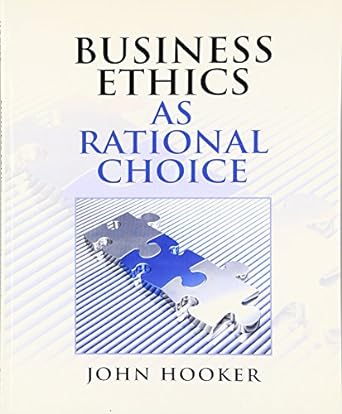Opt in or opt out.30 Countries typically use an opt-in or opt-out approach to organ donation. Opt-in
Question:
Opt in or opt out.30 Countries typically use an opt-in or opt-out approach to organ donation. Opt-in countries give people an opportunity to sign a donor card to grant permission to us their organs.
Opt-out countries assume that people give permission unless they fill out a form or make a phone call to revoke consent. Johnson and Goldstein31 report that organ donor consent is much higher in opt-out countries. If permission to donate is the default, people tend to let it stand. They are much more reluctant to give permission by overriding a default. Table 6.3 shows the rates for European countries. (The Netherlands’ relatively high opt-in rate is due to an aggressive public campaign.) In the United States, an opt-in country, 85% of people “approve” of organ donation but only 28% grant permission. The article states that more than 45,000 people in the United States died in 1995 while awaiting a donor organ.
It suggests that many lives could be saved by switching to an opt-out policy.
Because opting out requires some effort in Europe, one may ask whether the inconvenience of opting out explains the low rates. Johnson and Goldstein conducted an online survey of 161 U.S.
respondents, who were asked to assume that they had just moved to a new state. Question 1 asked them if they would opt in to organ donation if given the opportunity. Question 2 asked if they would opt out.
Question 3 asked how they would respond if required to choose whether to donate (with no default).
The results (Table 6.4) show that only half as many people donate when required to opt in. Defaults therefore remain a key factor even when no effort is involved.
Is it ethical to use an opt-out system to save lives? Or is it dishonest? A rational agent would presumably make the same choice regardless of the default. The low opt-out rate suggests that an opt-out system plays on psychological factors that distort the agent’s true intent. There are substantial opt-in/optout differences for online privacy,32 selection of insurance coverage,33 and the level of pension savings.34 Hints. There are several possible explanations for why people opt out, such as: 1. It is too much trouble to opt out. 2. People don’t want to think about the choice because of its emotional content. 3.
People overlook the matter, perhaps because it is in “fine print,” they are busy, or some other reason.
Analyze the issue under each scenario.
Step by Step Answer:






